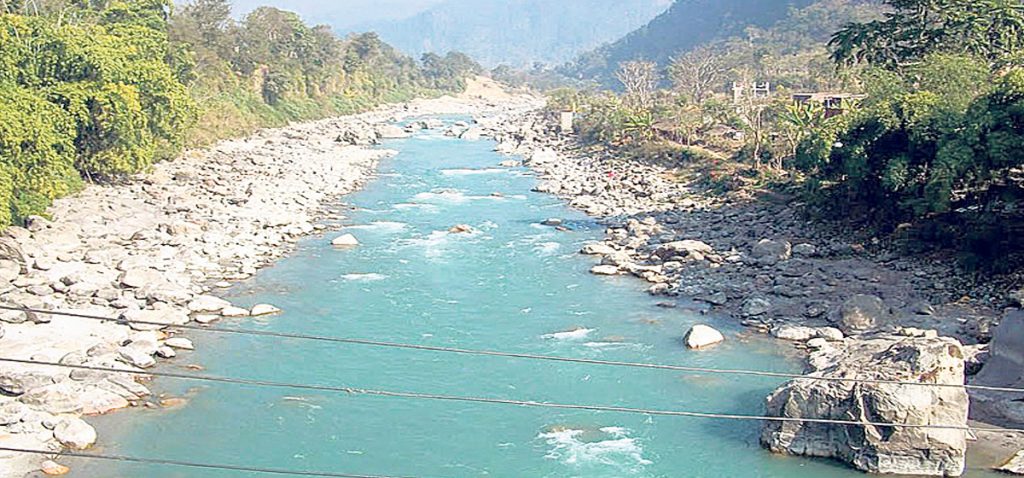KATHMANDU: The Nepal government has established the Budhigandaki Jalvidyut Company Limited for the purpose to generate 1200 megawatt of electricity for Budhigandaki reservoir project. The paid-up capital of the company is 20 billion rupees.
The Ministry of Energy, Water Resources and Irrigation has registered the company at the Office of the Company Register on Friday. According to the ministry, the contact office of the company can be located in other districts as per the requirement.
The company, established for the operation of the project of generating electricity from the water of Budhigandaki river, has a dozen objectives.
Even though it has been a long time since the decision to set up the company was made, there was widespread concern that the process had not progressed. In a press conference organized by the Ministry of Energy a few days ago, the Minister of Energy Pampha Bhusal said that some technical work is still pending, so the establishment of the company is taking time.
The government has also made arrangements in the current year’s policy and program and budget to build the Budhigandaki reservoir project, which is a project of national pride, on a company model. The process could not move forward as a concrete decision could not be made for a long time regarding whether to construct the project with a total capacity of 1,200 megawatts with domestic investment or to give it to a foreign company.
So far, the government has distributed compensation worth 40 billion rupees only to those affected by the project. More than 70 billion was collected through Nepal Oil Corporation by imposing infrastructure tax for such projects.
The government, few months ago, decided to build the project, which was held by the Chinese company- China Gezhouba Group Company Ltd (CGGCL) for a long time, with domestic investment. The project, which will affect nearly 50,000 people from villages of Dhading and Gorkha districts, is also considered important for Nepal’s energy security and reliability.
After revoking the contract with CGGCL on November 13, 2017, the Deuba-led government had handed over the responsibility to construct Budhigandaki project to Nepal Electricity Authority within eight years on engineering procurement and construction model on November 24, 2017.
The government had formed a committee led by then vice-chairman of National Planning Commission, Swarnim Wagle, to submit the appropriate model to build the project. At that time, the government had decided to construct the project utilising domestic funds and technology.
The board of directors of the company has been arranged to have seven members. It has been arranged that there will be three people from the government, the secretary of the Ministry of Energy, Water Resources and Irrigation, one gazetted first class officer from the Ministry of Energy and from the Ministry of Finance, the executive director of Nepal Electricity Authority and an independent director.
A woman has been mandated as an independent director. Other than the founding director, the tenure of the director will be five years.
The authorized capital of the company will be Rs 60 billion. The capital has been divided into 600 million ordinary shares at the rate of 100 per share. The immediate issued capital of the company will be 20 billion.
The Ministry of Finance will have a 25 percent stake in the company. That means 15 million shares will be equal. Similarly, the Ministry of Energy, Water Resources and Irrigation will own 40 percent shares. That means the total will be equal to 240 million shares and Nepal Electricity Authority will have 14 percent share.
Moreover, 10 percent of the local residents, i.e. 60 million shares, and the general public will also receive the same 60 million shares. Before that, the Ministry of Energy had entrusted NEA Engineering Company, a subsidiary company of the Nepal Electricity Authority, with the task of reviewing the latest situation including the cost of the project.
The company suggested an opinion on the latest situation regarding the detailed project report prepared by the French company, Tractebel Engineering. The French company said that the cost of the project will be equal to Rs 270 billion.

